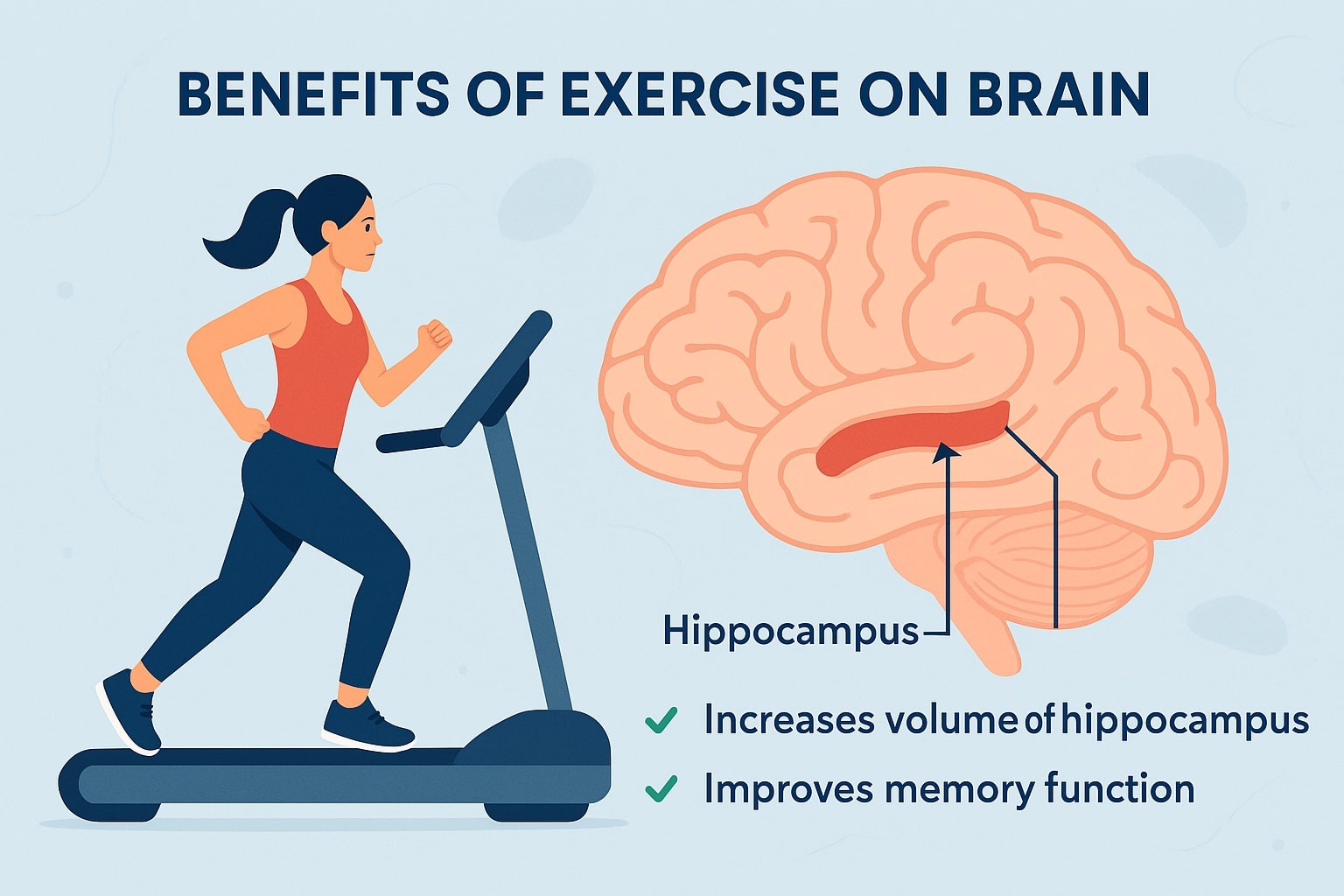
The hippocampus is a crucial part of the brain involved in the early stages of cognitive problems like dementia and Alzheimer’s disease. Early damage to the hippocampus, especially in areas like the CA4-dentate gyrus and molecular layer, is linked to memory problems and a higher risk of developing dementia. This damage is often caused by the buildup of amyloid-β and tau proteins.
Exercise, especially moderate-to-high intensity aerobic exercise, increases brain-derived neurotrophic factor (BDNF) in the hippocampus, which supports neurogenesis and synaptic plasticity. Studies show that doing aerobic exercise for 30–60 minutes, 3–5 times a week, can increase BDNF levels and promote neurogenesis. High-intensity interval training might induce even greater effects than moderate exercise.
Exercise helps prevent memory problems in many ways: it slows down hippocampal atrophy, enhances neurogenesis, improves synaptic plasticity, reduces neuroinflammation, and lowers vascular risk factors. Research shows that regular aerobic exercise can increase hippocampal volume, improve spatial memory, and slow cognitive decline in older adults. These benefits are strongest with consistent, moderate-to-high intensity workouts.
START YOUR JOURNEY
CONTACT US!
Complete this form so we can assist with your mental health journey.
